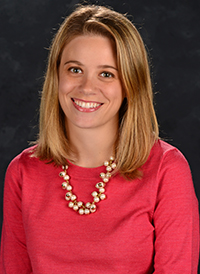Rob Wild, associate vice chancellor for students, has no preconceived notions about what Washington University’s proposed diversity center should be. That’s for students, faculty and staff to decide. But he does know this — it must serve everyone.
“This cannot be a place just for some of our students,” Wild said. “Historically, there have been a lot of multicultural centers that focus on underrepresented populations, whether that’s African-American students or Latino students. But I want there to be reasons for 100 percent of students to come here.”
Wild and junior Seiko Shastri are leading a committee to develop a university center for diversity and inclusion. They invite all community members to two town hall meetings to discuss the center’s mission, location and name. The first meeting is at 8 p.m. tonight, Sept. 25, in WIlson Hall, Room 214; the next meeting is 8 p.m. Oct. 24 in Seigle Hall, Room L006.
The center for diversity and inclusion is one of eight initiatives sponsored by the Mosaic Project, the campuswide program devoted to strengthening diversity on campus. The project was created in response to a racially charged episode in the Bear’s Den last year. Vice Chancellor for Students Sharon Stahl still is pained by the memory of the incident, but said it awakened her to the stubborn challenges that continue to confront the university.
“We all wanted to think that was an aberration, but since it has happened, I’ve had a lot of students come up to me and tell me about times that they have felt marginalized or unsupported,” Stahl said. “That has helped me understand we have a lot of work to do. Because we are a majority white, privileged community, most of us never encounter these things, but there are members of our community who do encounter them. So how do you create a safe place place where we can have those difficult conversations?”
Stahl hopes the center creates not only more mindful students, but more mindful doctors, teachers and city council members as well.
“Often when we do things that are hurtful it’s because we’re unaware, but intention doesn’t lessen impact,” Stahl said. “And so we really do need to learn about one another. Everyone who is here is going to go out into the world and play a role of leadership. And to do that well you must respect and understand the people around you.”
The center is just the start. Other Mosaic Project working groups include a Policies and Procedures Committee that has cataloged the university’s policies regarding inappropriate behavior and is identifying possible inconsistencies; a Social Media Committee that will develop ways to encourage civil online discourse and a Bias Response System Committee that will launch in January a website where students can report incidents of bias.
Stahl also has hired Jessica Wilen (AB ’06, MSW ’07) to serve as Mosaic Project coordinator. Wilen is a clinical therapist who most recently worked with sexual-assault survivors and offenders. She also is young and white. In other words, she is a lot like many students here.

“We tend to think of diversity as a niche issue. It’s not,” Wilen said. “One of the most important questions for us is how to reach the whole congregation, not just the choir.”
Wilen recently published her first monthly online update and hosts open office hours at 3 p.m. Tuesdays at the Danforth University Center. She also has been meeting with student groups and staff members, basically anyone who wants to ask questions or offer input. Her goal is to make the Mosaic Project transparent and action-oriented.
“Students were concerned this was a reactive response — an incident happened and the university needed to respond,” Wilen said. “Part of what I’m trying to do is to acknowledge what happened but to move forward, to recognize that conversations about identity extend beyond race. We want to widen the lens and accomplish some very tangible goals so that our campus culture is as inclusive as possible. From a personal perspective, this is incredibly important to me. I want everyone to have the same wonderful experience I had as a student here.”
Center for Diversity and Inclusion Town Hall Meeting
When: 8-9 p.m. Wednesday, Sept. 25
Where: Wilson Hall, Room 214
More information: http://diversity.wustl.edu/students/mosaic/